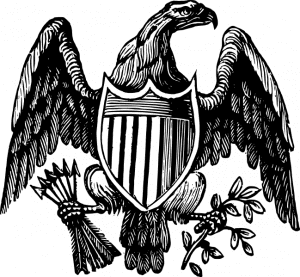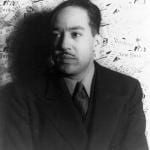The pipes groaned. We watched and there was a drip of water at the end of the nozzle. One drop. Was this just residue from the line? Were the rattling pipes frozen still? We stared and another droplet formed and hit the glass with a plop that was joyful. If the water drips steadily, however slowly, you can collect that water in a pot, boil, and use. We just needed a tiny drip, a lighter for the gas burners, and patience. The patience is the hard part. Tempting to complain, to dash out and add to lines of people who really need help, but if we just made a plan and waited, we could wash up, clean up, drink water.
Just a bit, a tiny bit, steadily coming gave us hope. We could (eventually) flush a toilet ridding us of days of stench. The drip-drop at the faucet made many good things inevitable.
The Houston ice storm impacted many people. Some had no homes. Others faced disastrous leaks combined with no power. Yet even this is nothing compared to the sufferings of people of faith under the atheist regime enslaving the people of China. The sufferings of the enslaved population of the United States lasted hundreds of years and was quickly followed by penal slavery and Jim Crow segregation laws. This was real suffering next to which anything we might endure is hardly an image of an image of an image.
Yet when almost nobody else would help, the world mostly opposed yet complacent, allies timid, the enslaved knew the truth. They met. They learned to make do. By hard work and endurance, Black people learned to read, defied the unjust laws, ran to freedom, created newspapers and an alternative Christian culture. They kept writing and the righteous water of this baptism of fire began to build to a flood. These were drips of water from wells of divine inspiration they dug without out help. This water meant that good must come or society collapse. Hope makes justice inevitable. Tyranny, that grime on the human soul, cannot last against the small contributions, the constant creations of free men and women. The justice was inevitable in the face of such power. That more allies could not be found, that the justice was delayed even a moment, was a great sin against nature and Nature’s God. Yet
Samuel Wright addressed the institution of slavery with his Christian words in 1860, just one year from the war of liberation. His imagination could not “conceive” of how slavery continued. Note that Wright did not view slavery as the norm, but that there must be a restoration of freedom and of land. Even if the enslaved had been in America for hundreds of years, they were free by nature and birth. Slavery was unnatural and freedom a restoration. If they received the land on which they toiled, earned by the sweat of their brow, this was not reparations but a restitution of land that by nature belonged to these workers!
We should recollect this lesson today.
The false wisdom of misanthropy counts the cost in gold and will not pay. The human Christian counts the cost in human suffering and realized there is nothing to pay, just property to restore. Samuel Wright wrote and trusted in God. This is a powerful combination: work and pray. Nothing has endured against that combination: not Stalin’s Russia nor the segregated South. The culture of death that allows people to freeze to death on a cold Houston night or to be aborted before birth cannot last if we persist.
We must listen to the voices of those who came before us, who hoped against “rational” hope, and won. We must allow everyone to partake in economic liberty without favor for the wealthy. We must give just earnings and property to those who work. All of this is natural to Christianity, but unnatural to the misanthrope. If we have loved mammon, charging usury for education, let us repent and move forward. Let us consider all human suffering and side with drops of water that will inevitably wear away even the hardest stone. Here I cannot teach, only listen, learn, and seek to pass forward the water others have found.
Clean me with such water dear God!
Address to Slavery
By Samuel Wright
The Weekly Anglo-African, February 18, 1860
Slavery, O Slavery!
I cannot conceive
Why judges and magistrates do not relieve
My down-trodden people from under thy hand,
Restore them their freedom, and give them their land.
The loud voice of reason incessantly cries,
Ye lovers of Mammon, when will ye be wise?
How long will misanthropy reign in your hearts?
Behold the poor slaves, and consider their smarts.
Upon the plantation they labor and toil,
Exert all their strength to enrichen the soil,
While the sun pours upon them its hot scorching ray,
Without intermission the whole livelong day.
Hope God by His power will save them at last,
And bring them as Israel in ages that’s past,
Out of the reach of proud slavery’s chain,
T0 enjoy the sweet comfort of freedom again.*
————–
*Voices Beyond Bondage . NewSouth Books. Kindle Edition.












